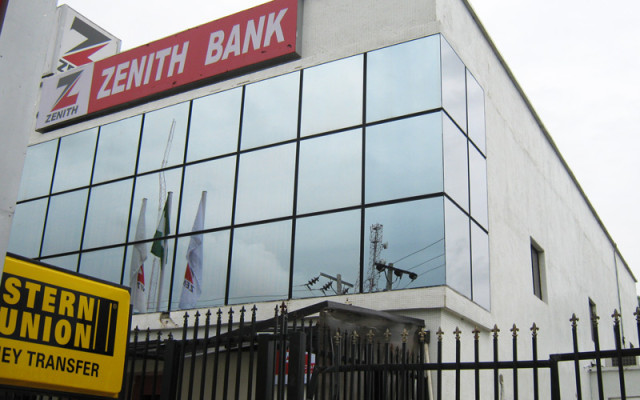By: John Danjuma Omachonu
Zenith Bank Plc, one of Nigeria’s leading financial institutions had a superlative outing last year based on performance indicators as released last week to the Nigerian Stock Exchange, (NGX)
The bank announced its audited results for the year ending December 31, 2022, achieving an impressive double-digit growth of 24 per cent in gross earnings, from N765.6 billion reported in the previous year to N945.5 billion in 2022.
The audited financial results as presented to the Exchange (NGX), also showed double-digit growth in gross earnings driven by a 26 per cent year-on-year (YoY) growth in interest income from N427.6 billion to N540.2 billion and a 23 per cent year-on-year (YoY) growth in non-interest income from N309 billion to N381 billion.
Consequently, Profit before tax also grew by two per cent from N280.4 billion to N284.7 billion in the current year. The increase in profit before tax was due to the significant growth in all the income lines.
The stellar performance was despite the persistent challenging macroeconomic environment and headwinds, typified by volatile foreign exchange market, high inflationary pressures, rising interest rates as well as some negative externalities that impacted on the economy.
MetroBusinessNew (MBN) interactions with respondents From The Street (FTS) showed that their
utmost interest was the explanation by the bank of some impairments that impacted on growth resulting in an increase in the cost of risk (from 1.9% in 2021 to 3.3% in the current year), attributing also to the impact of Ghana’s sovereign debt restructuring programme.
The implication of this, according to some analysts is that managers must equally pay attention to external influences on their operations and basically, the bottomline.
Specifically, It also showed that impairments grew by 107 per cent from N59.9 billion to N124.2 billion, while interest expense grew 63 per cent year-on-year from N106.8 billion to N173.5 billion, respectively.
The growth in interest expense increased the cost of funds from 1.5 per cent in 2021, to 1.9 per cent in 2022, due to hikes in interest rates Globally.
Infact, Fitch Ratings, a global credit rating agency, said sometime ago that the restructuring of Ghana’s debt would have some impact on some Nigerian banks operating in the neighbouring country.
It has reported then that Ghana was pushing ahead with its plan to restructure its debt in a bid to qualify for a $3 billion loan from the International Monetary Fund.
Few days later, the country started offering domestic bondholders fresh local-currency bonds that won’t pay interest before 2024 in exchange for their existing debt, according to Bloomberg.
“Sovereign debt distress is the major risk to African banks’ financial profile,” Fitch said in its African Banks Outlook 2023 report. “The Ghana debt restructuring will affect domestic as well as regional banks.”
It said the debt restructuring would have large implications for the banking system as banks have large exposure to the sovereign through holdings of government securities.
Describing the outlook for Nigerian banks as deteriorating, Fitch said asset quality would remain fundamentally conditioned by sovereign credit risk, given high sovereign exposure through securities and cash reserves at the Central Bank of Nigeria (CBN).
“Asset quality of the largest five banking groups will also be influenced by rising sovereign debt sustainability risks across the continent through their Sub-Sahara Africa subsidiaries. A restructuring of Ghana’s debt would have some impact [on] some banks’ asset quality as they have large operations in the country,” it said.
Nigerian banks operating in Ghana are Access Bank, Ecobank, Fidelity Bank, Guaranty Trust Bank, United Bank of Africa and Zenith Bank.
Over 50 percent of banking system assets in Ghana are controlled by subsidiaries of South African, Nigerian and Togolese banking groups, according to Fitch.
“These subsidiaries tend to represent a fairly small percentage of their respective banking group’s assets, thereby making extraordinary capital support manageable. We believe parent banking groups will likely provide capital support to preserve their operations in Ghana through a sovereign default,” it said.
Fitch said the losses imposed on the banking system from the announced debt restructuring could be of such a magnitude that it undermines some banks’ solvency and liquidity.
However, Zenith Bank’s customer deposits increased by 39 per cent, growing from N6.47 trillion in the previous year to N8.98 trillion in the current year.
The growth in customer deposits came from all products and deposit segments (corporate and retail), thus consolidating the bank’s market leadership and indicating customers’ trust.
Interestingly, the continued elevated yield environment positively impacted the bank’s Net-Interest-Margin (NIM), which grew from 6.7 per cent to 7.2 per cent due to an effective repricing of interest-bearing assets.
Also, its operating expenses grew by 17 per cent year-on-year, but growth remains below the inflation rate. Its total assets increased by 30 per cent, growing from N9.45 trillion in 2021 to N12.29 trillion, mainly driven by growth in customer deposits.
With the steady and continued recovery in economic activities, the Group prudently grew its gross loans by 20 per cent, from N3.5 trillion in 2021 to N4.1 trillion in 2022, which increased its non-performing loan (NPL) ratio modestly from 4.2 per cent to 4.3 per cent year-on-year.
According to the bank, its capital adequacy ratio decreased from 21 per cent to 19 per cent, while the liquidity ratio improved from 71.2 per cent to 75 per cent. Both prudential ratios are well above regulatory thresholds.
“In 2023, the Group intends to expand its frontiers as it also reorganises into a holding company structure, adding new verticals to its businesses and growing in all its chosen markets, both locally and internationally.
“As a testament to its commitment to shareholders, the bank has announced a proposed final dividend payout of N2.90 per share, bringing the total dividend to N3.20 per share,” the bank revealed.












